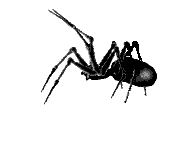|
|
|

October 27, 1997 Chemicals in Pot Cut Severe Pain, Study Says Cannabinoids are shown to reduce arthritic inflammation. New class of drugs is possible.
By ROBERT LEE HOTZ, Times Science WriterNEW ORLEANS--Adding new fuel to the controversy over medical uses of marijuana, researchers reported Sunday that active chemicals found in the plant could serve as an effective remedy for the millions who suffer serious pain each year, without the unwanted side effects of more traditional morphine-like drugs.
New animal studies by research groups at UC San Francisco, the University of Michigan and Brown University show that a group of potent chemicals known as cannabinoids, which include the active ingredient in marijuana, relieve several kinds of pain, including the kind of inflammation associated with arthritis, as well as more severe forms of chronic pain.
The scientists said they believe that the new research opens the way for a new class of drugs to control pain.
Marijuana's painkilling properties have long been an unheralded --and unconfirmed--staple of medical folklore. But now, sophisticated animal studies of the active biochemicals in marijuana, presented Sunday in New Orleans at a meeting of the Society for Neuroscience, for the first time demonstrate that they have a direct effect on pain signals in the central nervous system and other tissues.
Unlike the current crop of painkillers based on opiates, the new class of chemicals is not addictive, nor does it appear to carry the risk that patients may develop tolerance for it and require increasing doses, the new animal research indicates.
"Cannabinoids, at least in animal models, can reduce pain," said UCSF pharmacology expert Ian Meng, who is studying the painkilling properties of several synthetic cannabinoids.To discover how these substances regulate pain, researchers traced the tortuous biochemical pathway that pain signals follow, from the site of an injury, through the spinal cord and to the brain. In their experiments, they used both the active ingredient in marijuana--a chemical called delta-9-THC--and an array of more powerful synthetic creations.
Scientists discovered that molecular receptors to which the chemicals can bind are so widely present that researchers at the Medical College of Virginia now suspect that naturally occurring cannabinoids may govern the body's basic threshold of pain.Marijuana is the newest of nature's analgesic compounds to attract scientific attention. From aspirin and willow bark, to opium and poppy flowers, most modern painkillers are derived originally from plants.
Indeed, people have been writing about the painkilling properties of marijuana since the 1830s, and a century ago, patent medicines based on cannabis compounds were a staple of pharmacy shelves. As stringent drug control laws were adopted at the turn of the century, the folk remedies were abandoned.
* * *Nonetheless, until recently, most evidence suggesting that marijuana could relieve pain was anecdotal, and serious research efforts have been clouded by the politics of drug control in California and other states that have passed measures legalizing the medical use of marijuana despite federal laws banning the plant.
"There is a long history of human use of cannabis to control pain; science has lagged behind for a lot of reasons," said psychologist J. Michael Walker at Brown University, who is investigating how synthetic cannabinoids block pain signals from reaching the brain.
"They stop pain before it ever enters the spinal cord," he said.
Working in animals, Kenneth Hargreaves at the University of Texas reported Sunday that the marijuana-like chemical can relieve the inflammation associated with arthritis when injected directly at the site of an injury. And Donald Simone at the University of Minnesota reported that the chemicals also can block the onset of an extreme sensitivity to pain called hyperalgesia, which flares up during nerve diseases and spinal cord injuries.
"These results suggest that local administration of the cannabinoid to the site of injury may be able to both prevent pain from occurring and reduce pain which has already occurred without producing side effects," Hargreaves said.
A number of neuroscientists said Sunday that marijuana's newly confirmed utility as a painkiller would inevitably broaden the drug's appeal beyond those seriously ill patients who seek it out today to stimulate appetites destroyed by wasting diseases like AIDS or to alleviate the nausea of chemotherapy.
"People who have serious illnesses will take the steps they feel they have to take; certainly the new research you are hearing about here would lead people in that direction," Walker said.
* * *That, in turn, may spur broader federal support for research into marijuana's analgesic effects, scientists said Sunday. Over the long run, however, they believe that their work will result not in a new generation of pot smokers, but in a range of new pills, topical ointments and injectable pain-control drugs based on the natural chemistry of marijuana.
"If you have pain, we certainly don't suggest you drink willow bark tea, although willow bark certainly has the natural products that would inhibit it by having aspirin-like effects," Hargreaves said. "Instead [we] suggest that you turn to your drugstore where you can get the more synthetic and more potent agents to produce the effect.
"And I think the same thing would be true here," he said, "that if we could fund more research in this area, we would have a greater opportunity to take drugs that are more selective and more potent."
Los Angeles TimesMarihuana for agony
~~ Back to Web Station #19 ~~ Back to Reference Library ~~

random links transporting dazed and confused free range arachnids to insane asylums since MVM





webisode cote de pablo anything she wants back to the garden party
future famous admits to smoking depression Last g help occupy rent too high
woodstock nation back to the future quiet resolve of my ego
bill of rights who why where when how cough
rush trees paris Capitalism war on drugs weeds pothead extra meat
naked nude Ronald E Gascon for president sedgwick joise bisset
phoenix pilgrims recession ganja